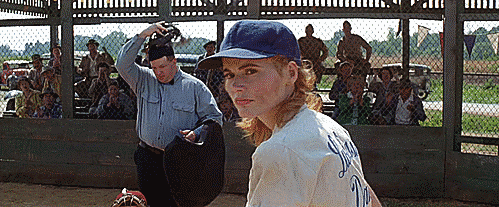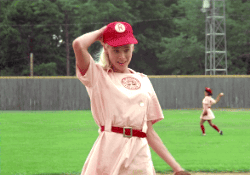First, let me be clear: I am a HUGE fan of Jonathan Rosen's work!
If you haven't read his first book, NIGHT OF THE LIVING CUDDLE BUNNIES, go buy it right now and thank me later!
Now He's Back (You can't tell but I said that in a really creepy scary voice way) with a sequel: FROM SUNSET TILL SUNRISE!
The Description:
Devin Dexter and his cousin Tommy just saved the city of Gravesend from the menace of magical, malicious Cuddle Bunnies brought to life by the warlock, Herb. But there’s no rest for the wicked, as a new mysterious neighbor moves in across the street. At night. With a coffin. Tommy immediately jumps to conclusions as he thinks this can only mean one thing: Vampires.
Devin isn’t so quick to believe, as he is struck by the neighbor’s daughter, a girl his age. Even though Tommy points out that they have never seen her during the day. Yet when she invites him to a dance at her school—the Nosfer Academy of Talented Understudies—how can Devin say no? Tommy, though, realizes that this is an opportunity. After tackling a wizard last winter, surely they can protect Gravesend from some measly vampires, right?
The Interview with the author, the legend:
1. Three words that describe FROM SUNSET TILL SUNRISE
Funny, Scary, Vampires . . . wait, did I mention funny?
2. The first paragraph of the book had me snorting out loud. What I need to know: Under what circumstances would vampires NOT be bad neighbours?
Hopefully, there were more laughs besides the first paragraph! 😊But, thank you!
I would say that maybe the Love at First Bite type of vampires might be fun to live near. Maybe Count Chocula, or the Count from Sesame Street, but they’d be the exception, not the rule. Still, overall there aren’t too many circumstances where vampires make decent neighbors. Herb was right, they definitely bring down property values.
3. I was happy to see Herb back! Herb is the world’s biggest supplier of “Dad Jokes”! So my question is: Do your readers get those jokes, or are they more like Easter eggs for your adult readers, who find them hysterical? I snorted out loud when I read, “They’re like Martin and Lewis right around the breakup, not the reconciliation on the telethon.”!
Herb is my favorite character to write for! My kids love him. Herb does allow me to get things in for the adult readers. His pop culture references are decades out-of-date. There is a reason for it, but I’m saving that. I think his lines are funny for kids, but adults will get him on a different level. Also, I think it can’t hurt having kids go look up the cultural references that they’re not sure of.
4. One of my favourite lines in the book is the following: “A special on holy water? Why would anyone need so much holy water?” Clearly, only Tommy realizes that Gravesend is not like other places! Can you talk about the roles that Devin and Tommy play in your books?
I also love writing for Tommy! Devin is us. The reader. How we’d be reacting to these situations. Scared, curious, analyzing, and cautious. Reacting to the mayhem around him. Tommy is the one who serves as the other part of the reader. The part of us who says it’ll be all right. We can do this. He also serves as the reader’s thoughts. Giving a wink to the reader. Saying the things the reader is thinking about all the tropes in use. By this time, most readers are familiar with the tropes in horror. Inviting a vampire into the house. The ways to defeat a vampire. Tommy calls it out. He says what the reader is thinking. He’s letting the reader know, “We know that you know all these things, but here’s how we’re going to skew them.”
5. How do you balance the funny and the scary? Because sometimes, this book can be a little scary?
I think when you write anything horror-related, you MUST have scary elements. It’s a disservice to the genre, otherwise. I’m a huge fan of the funny-horror genre, like Shaun of the Dead, Zombieland, Gremlins, Fright Night, and even Nightmare on Elm Street. All those movies were funny, but they also had scary. The comedy is a release. When you think about some of the situations in horror, they’re absurd. Who runs upstairs when there’s a killer in the house? For the most part, horror protagonists lack common sense. So, I do like to call attention to that, but that doesn’t mean the situation itself isn’t still scary. The protagonists ARE facing terrible stakes. Death is possible. So, you have to have them dealing with the threat, while at the same time letting the audience know, we realize the hero did something they shouldn’t have, but now that they’re in this situation, let’s figure a way out and hope he’s learned his lesson.
6. Was it easier to write the sequel than the first book, or did you put extra pressure on yourself?
MUCH more difficult to write the sequel. First off, I had less time. Once Night of the Living Cuddle Bunnies was getting close to pub date, we started discussing a sequel. They wanted something months later to prepare for the following year. So, I had literally half the time I did on the first book.
Not to say that some things weren’t easier. We now have established characters, so it’s a little bit easier to introduce them into the story, since the reader already has some expectations of them from the first novel. But, as with any sequel, you can’t do what was already done. You have to raise the stakes. So, there was some pressure with all of that.
7. There are lots of twists and turns in this story, and let’s face it: The grownups are a bit clueless. Do you always know exactly what’s going to happen before you write?
Kind of, but not always. I used to outline every single detail. And I know a lot of authors still advise that. But, now, I go in with a loose outline. I know the premise. I know basically how I want it to end, and the general direction of the story, but I give myself some leeway on how to get there. Sometimes, while I’m writing, something occurs to me that I hadn’t thought of beforehand, and now I’ve given myself the liberty to take the story in a new direction and explore it. Just as long as I still come back to my ending, or some form of it.
8. What are you working on now?
Well, my agent is shopping one now. A fun book, with magic and Jewish mythology, that means a lot to me. But, I’m also working on two different books at the same time. Both dealing with folklore and a little bit of Mexican mythology. In a humorous way, of course 😊
9. These books beg to be a movie or a TV series! Any chance?
Thanks! I think so too! There’s always a chance, right? But, we had actually been approached for Night of the Living Cuddle Bunnies, but so far nothing. I hear that’s common, but would love to see it done. Especially, to see who they get for Herb. And besides, who doesn’t want to see marauding, murderous, stuffed bunnies hopping across the screen?
10. This is your sophomore book. What surprised you the most about being a debut author versus a sophomore author?
The debut experience is a whirlwind. You have so much going on, that you don’t really get to stop and enjoy the moment. I mean, I definitely tried, but you’re worried about everything. You have no idea what you should be doing. Promoting yourself was also a constant worry. Is it too much? Too little? There are so many things going on, which you’re not used to.
Once it’s done, there’s almost a letdown. All that anticipation, and now it’s over. Still, there’s nothing like seeing your book in the stores and libraries. What surprised me with the second one, was the fact that I didn’t feel that much differently. I do feel validated that I’m now a published author, but many of the other worries are still there. I’m under the assumption that it’ll always be like that.
Thank you Jonathan and congrats on the new book!
And those of you who want a daily laugh, follow Jonathan on twitter. His handle is @HouseofRosen, because he's also a fashion designer in his spare time!













